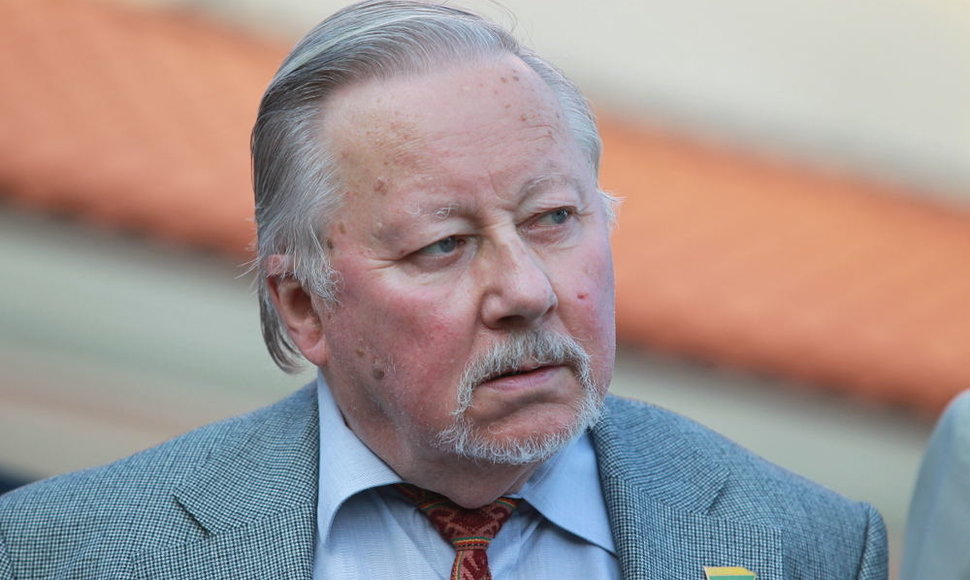At the presentation of his book in Vilnius on Tuesday evening, the politician said the book was inspired by discussions triggered by the reburial of the interim government's leader Juozas Brazaitis in Kaunas this May. His book also contains many documents of the time as well as memoirs from afterwards.
"The book was inspired by the controversy, turmoil, protests, and demagogy surrounding the transportation of ashes of Juozas Ambrazevičius-Brazaitis to Lithuania and reburial with certain respects of the state and big respects from the Church. Some intellectuals did not like this and went overboard with their protests," Landsbergis said.
Commenting on the operations of the interim Cabinet, he said that "Ambrazevičius could have deleted a few words before signing," pointing out that events could not be assessed outside the context of a certain time.
The MEP said that publishing documents should "impede retelling of rumors" about the interim government that was in office for six weeks but did not have any actual mandate. Landsbergis' father Vytautas Žemkalnis-Landsbergis was also a minister in the provisional government.
Landsbergis said people should not forget that the address from rebels about plans to restore independence and setting up of an acting government went against the will of the Nazis.
"The German government banned Lithuanians from setting up any government or publishing any address to the nation, but the rebels did the opposite. This was the first action of anti-German resistance – to resist the German order. And after all this, claims that they were German supporters and collaborators are biased and clichéd," said Landsbergis, chairman of the Supreme Council that declared Lithuania's independence in 1990.
Speaking at the presentation, historian and lecturer of the Lithuanian University of Educational Sciences Mindaugas Tamošaitis said the caretaker government should not be accused of Holocaust.
"The influence of the Lithuanian interim government, which did not have a de facto rule over Lithuania, upon the Holocaust was minimal, I would even say non-existent," Tamošaitis said.
"Saying something bad about Brazaitis would be a sin. He was a prominent personality, a figure of the Christian Democratic bloc who taught at a university and communicated with intellectuals," he said.
The Lithuanian Declaration of Independence was read out on Kaunas radio in the morning of 23 June 1941. When the German troops entered the city on 25 June, the city was fully controlled by guerrillas.
However, actions of Germany's military and, later, civilian administration soon suppressed the provisional government's control of the restored Lithuanian administration. After refusing to become subordinate to the Germans, the provisional government terminated its activities on 5 August.
Some Lithuanians were enthusiastic about the war, expulsion of the Soviets, and the accession of the Germans, especially because previous Soviet forces had been carrying out a policy of terror that culminated in massacres and deportations in June. Shortly after its formation, the provisional government applauded Adolf Hitler's efforts to fight Bolshevism and announced its plans to join the "construction of a new Europe." However, the first weeks of the German invasion to Lithuania sparked pogroms which killed thousands of local Jews. Leaders of the provisional government did not denounce the massacre in Kaunas.
Later on, during the rule by Nazi Germany, Brazaitis participated in anti-Nazi underground activities, and four members of the provisional government were taken to German concentration camps.












